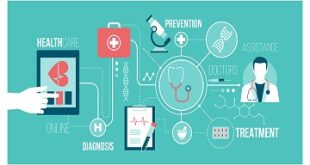Introduction:
Physical exercise is a cornerstone of a healthy lifestyle, offering a myriad of benefits that extend beyond the realms of physical fitness. Engaging in regular physical activity has been linked to enhanced mental well-being, improved cardiovascular health, and a reduced risk of chronic diseases. In this article, we will explore the multifaceted advantages of physical exercise, emphasizing its positive impact on both the body and the mind.
The Anatomy of Physical Exercise:
Physical exercise encompasses a broad spectrum of activities that involve bodily movement, from brisk walking and jogging to strength training and yoga. Regardless of the specific form, exercise has the power to improve overall health and contribute to a higher quality of life.
Cardiovascular Health:
Regular cardiovascular exercise, such as running, cycling, or swimming, has profound effects on heart health. These activities elevate the heart rate, strengthen the cardiovascular system, and improve circulation. The result is a reduced risk of heart disease, lower blood pressure, and enhanced cardiac function.
Muscle Strength and Flexibility:
Strength training, which includes activities like weightlifting or bodyweight exercises, promotes the development of muscle strength. Simultaneously, practices like yoga and Pilates enhance flexibility and improve joint mobility. Combined, these elements contribute to better overall physical function and a reduced risk of injury.
Weight Management:
Physical exercise plays a pivotal role in weight management by aiding in calorie expenditure and maintaining a healthy balance between energy intake and expenditure. Whether the goal is weight loss, maintenance, or muscle gain, regular exercise is a key component of a successful strategy.
Mental Health Benefits:
Exercise is not only a boon for the body but also a powerful ally for mental well-being. The relationship between physical activity and mental health is well-established, with exercise serving as a natural mood enhancer and stress reliever.
Stress Reduction:
Engaging in physical activity triggers the release of endorphins, commonly known as “feel-good” hormones. These endorphins act as natural stress relievers, promoting a sense of well-being and relaxation. Regular exercise has been shown to alleviate symptoms of anxiety and depression.
Cognitive Function:
The positive impact of physical exercise extends to cognitive function. Studies suggest that regular aerobic exercise can enhance cognitive abilities, including memory, attention, and problem-solving skills. This is particularly relevant in the context of aging, where exercise may help mitigate cognitive decline.
Improved Sleep Quality:
Individuals who engage in regular physical activity often report improved sleep quality. The relationship between exercise and sleep is bidirectional—better sleep supports exercise recovery, and regular exercise contributes to a more restful night’s sleep.
Reduced Risk of Chronic Diseases:
Physical exercise serves as a preventive measure against various chronic diseases. From type 2 diabetes to certain cancers, regular physical activity has been associated with a reduced risk of developing these health conditions.
Social Benefits of Exercise:
Beyond the individual benefits, physical exercise fosters social connections and a sense of community. Group exercise classes, team sports, or even regular walks with friends provide opportunities for social interaction, reducing feelings of isolation and enhancing overall well-being.
Longevity and Quality of Life:
Studies consistently highlight the association between regular physical activity and increased longevity. Moreover, individuals who maintain an active lifestyle often report a higher quality of life, characterized by greater mobility, independence, and overall life satisfaction.
Challenges and Solutions:
While the benefits of physical exercise are undeniable, challenges such as time constraints, lack of motivation, or physical limitations can hinder adherence to a regular exercise routine. Addressing these challenges may involve finding enjoyable activities, setting realistic goals, and incorporating exercise into daily life.
Conclusion:
In conclusion, the benefits of physical exercise are vast and impactful, encompassing improvements in cardiovascular health, mental well-being, and overall quality of life. Whether through aerobic activities, strength training, or flexibility exercises, incorporating regular physical exercise into one’s routine is a proactive step toward a healthier and more fulfilling life. As we navigate the demands of modern living, recognizing the transformative power of physical activity empowers us to prioritize our health, both physically and mentally.


